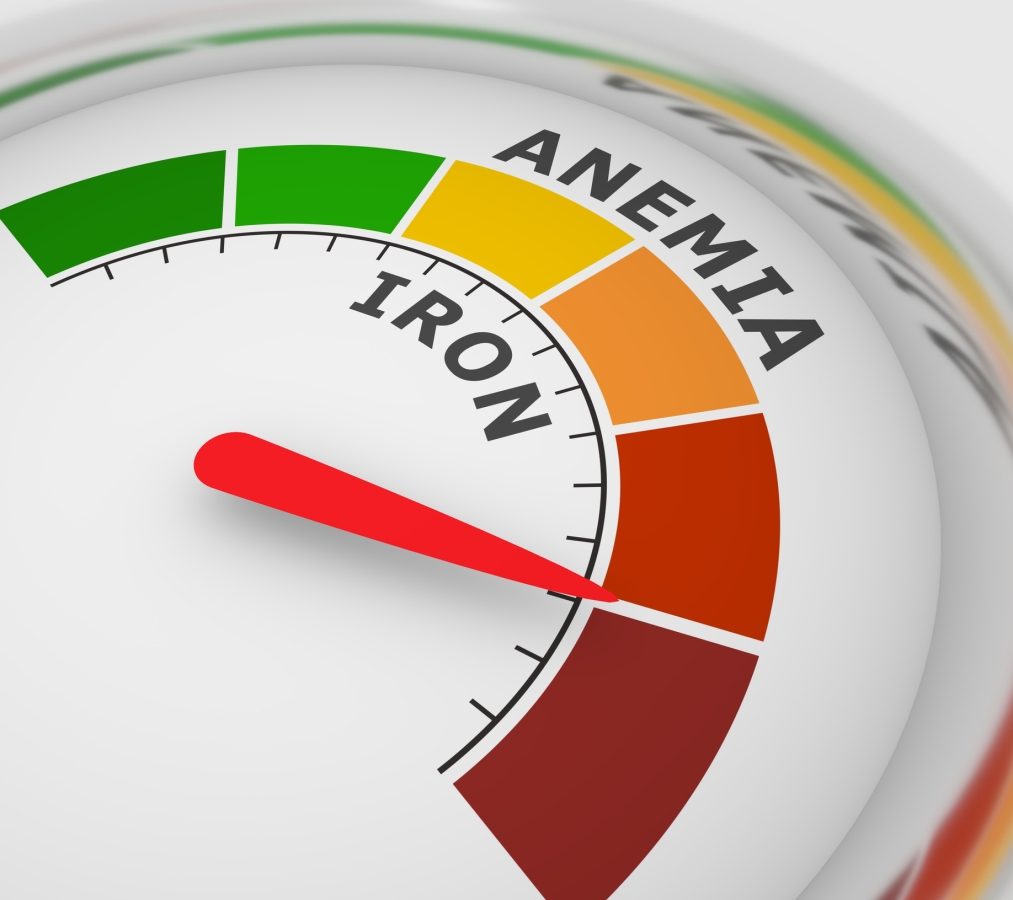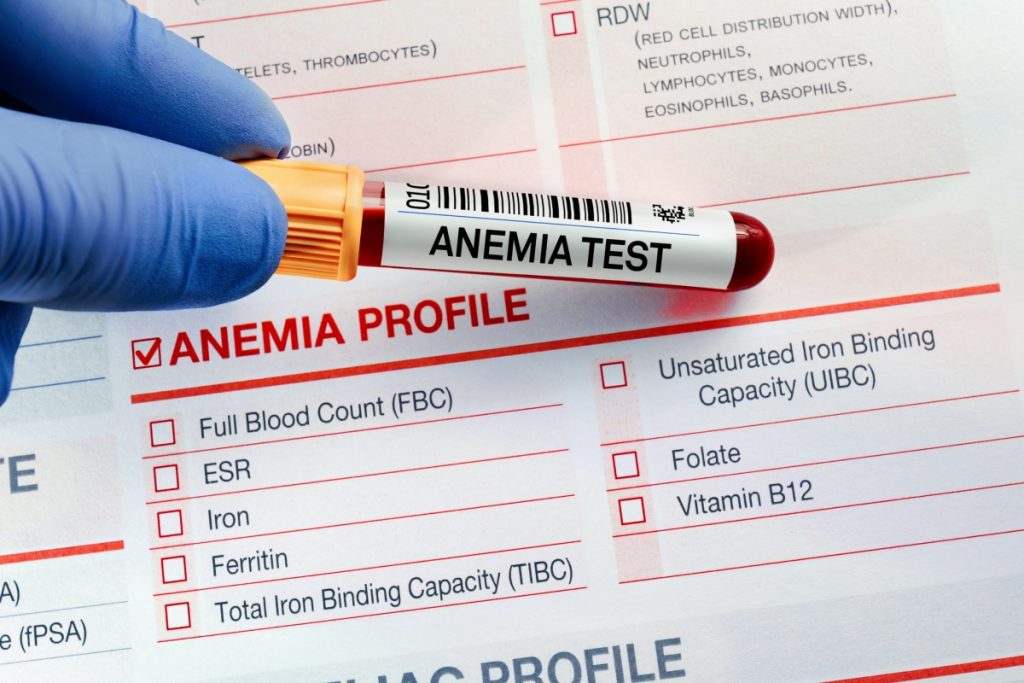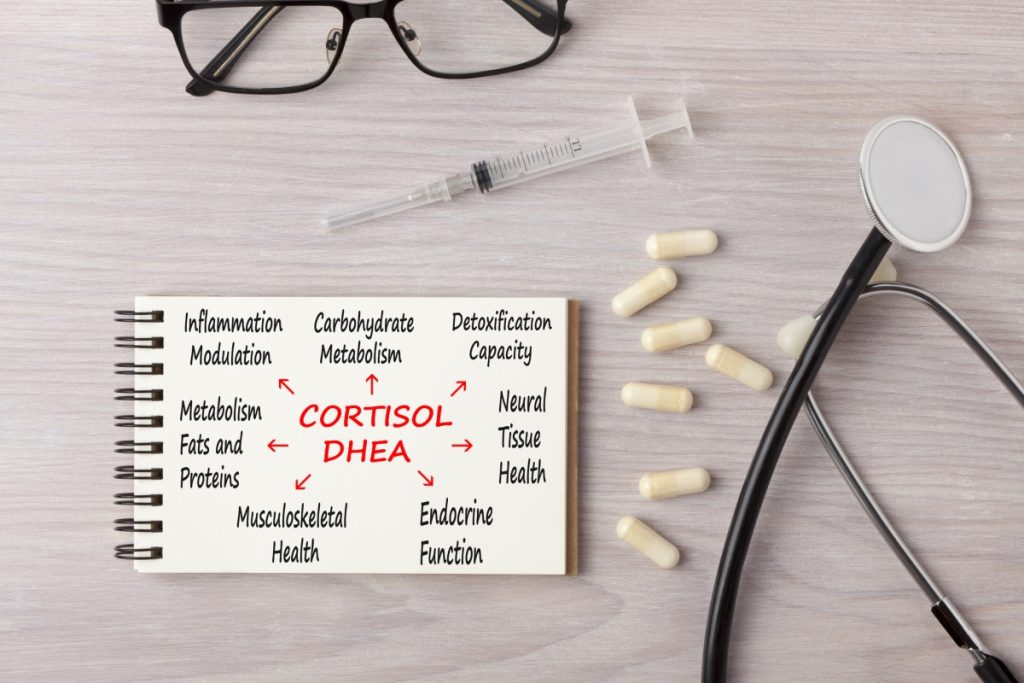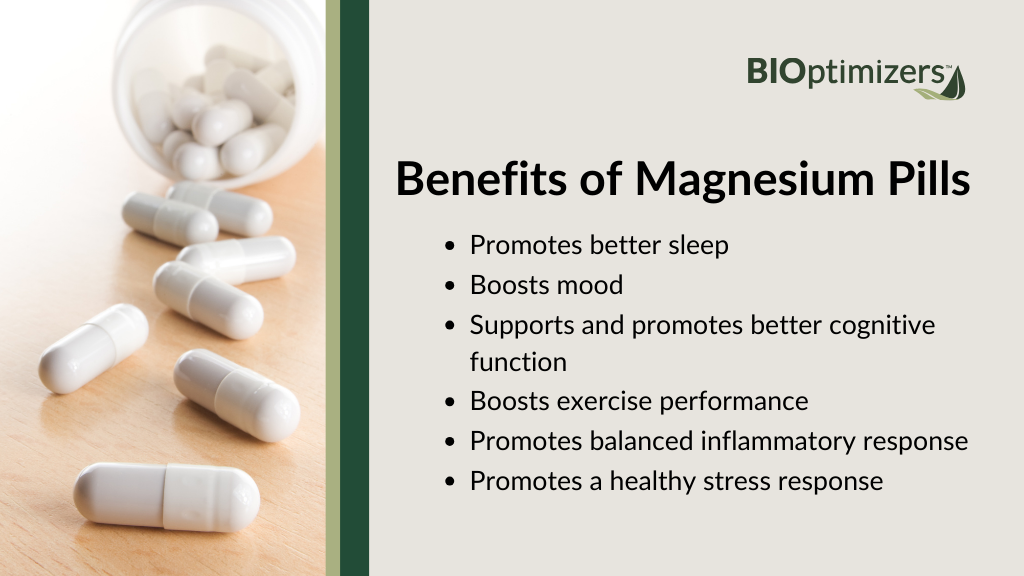
Why Am I Always Tired And Have No Energy?

It’s a sign that something is wrong. Common causes may include:
- Stress
- Poor sleep or lack of sleep
- Anemia
- Diabetes
- Problems with the thyroid gland
- Mitochondrial dysfunction
The great news is you can address these causes naturally. But first, you should see a doctor to rule out any serious causes.
This article covers less severe but more common causes of fatigue, which you can typically handle naturally by implementing changes in lifestyle habits, food, and supplements.

Why Am I Always Tired And Have No Energy?
Mitochondrial Dysfunction
Mitochondria are organelles (small membrane-bound organs) in our cells that produce energy as ATP. The mitochondria are becoming more recognized as contributors to human health and disease due to their function and location.
Fatigue is a hallmark symptom of mitochondrial dysfunction because your cells cannot produce enough energy.
The study aimed to determine biochemical differences between 73 patients suffering from fatigue and 51 healthy individuals. First, they measured ATP levels in 5 different ways and compared fatigued patients and healthy patients. These factors showed that patients had different biochemical profiles. Researchers also observed that the more dysfunctional the mitochondria are, the more severe the fatigue.
Stress
Fatigue is oxidative stress lowering orexin function and mitochondrial function. The lower mitochondrial function causes fatigue. Orexin is a protein that regulates arousal, wakefulness, and appetite.
There is an association between fatigue and physical and mental stress. Stress can throw off the nervous, hormone, and immune systems, leading to fatigue. You might feel emotional and mental exhaustion if you’ve dealt with multiple stressors.
Stress also increases oxidative stress, interfering with mitochondrial function and causing fatigue. Oxidative stress is an imbalance between the production and accumulation of reactive oxygen species in the cells and tissue and the body's inability to remove these toxic species.
Nevertheless, fatigue is a common feature of stress-related mental health problems.

Depression
Depression can make you too weary of doing anything; unfortunately, it is a typical occurrence for many who experience feeling down. Your energy levels tend to drop when your mood drops, with sensations like sadness and emptiness, which worsens feelings of exhaustion.
Depression differs from case to case, with the following factors as contributors:
- Circadian rhythm dysregulation and poor sleep
- Abnormal stress response
- Nutrient deficiencies
- Mitochondrial dysfunction and low thyroid function
- Hormonal dysregulation
Furthermore, mitochondrial dysfunction is one of the leading causes of fatigue. Since this contributes to depression, it is no wonder individuals will experience tiredness and lack of energy.
If you suspect you may have depression, you should see a doctor to get diagnosed and treated. However, addressing the lifestyle factors above can benefit both mood and fatigue.
Anemia
Anemia means you have fewer red blood cells and hemoglobin to carry oxygen to your cells. Anemia tends to be a symptom of an underlying illness, not a diagnosis. Because oxygen accepts electrons at the end of mitochondria energy production, the lack of oxygen delivery can increase oxidative stress and cause fatigue.
When hemoglobin falls below 7.0 g/dL, most patients have anemic symptoms, including :
- Weakness
- Tiredness
- Lethargy
- Restless legs
- Shortness of breath
- Chest pain and reduced exercise tolerance

Iron
Iron deficiency anemia is due to insufficient iron intake, improper work of iron stores in the body, and the body’s rapid loss of iron. This insufficiency gives improper support for the production of red blood cells. Hemoglobin requires iron to function properly. Therefore, iron deficiency is the most prevalent cause of anemia worldwide.
Symptoms of iron deficiency anemia include:
- Extreme fatigue
- Cold hands and feet
- Brittle nails
- Weakness
- Pale skin
- Headaches
- Chest pain
- Fast heartbeat
- Shortness of breath
- And inflammation of your tongue
Vitamin Deficiency (B6, B9, B12)
Deficiency in B12 and folate can lead to anemia. B12 and folate deficiency are the leading causes of megaloblastic anemia. In the bone marrow, enlarged red blood cell precursors called megaloblasts are a characteristic of megaloblastic anemia. These cells cannot carry oxygen.
B12 acts as a coenzyme in DNA synthesis and fatty acid synthesis. Thus, B12 deficiency can lead to hematological and neurological symptoms.].
B12 causes pernicious anemia, a type of megaloblastic anemia. Symptoms of this type of anemia are :
- Fatigue
- Shortness of breath
- Dizziness
- Lightheadedness
- Abdominal bloating
- Weight loss
- Loss of appetite
- Diarrhea
- Decreased cognitive and physical functions

Anemia From Inflammation
Anemia of inflammation is the second most prevalent anemia. This type of anemia affects individuals who have conditions that cause inflammation. For example, inflammation can be due to bacterial or viral infection, autoimmune diseases, cancer, and chronic kidney disease
In anemia of inflammation, iron levels in the blood are low. An individual can have normal or even increased iron in stored tissues. Still, their iron levels are low in the blood. This occurs because inflammation may prevent the body from using the stored iron to make healthy red blood cells.
Symptoms of anemia from inflammation include:
- Feeling tired or weak
- Body aches
- Pale skin
- Shortness of breath
- Getting tired easily
- Fast heartbeat
- Dizziness
Other Anemias
There are other types of anemias. Some of them are :
- Aplastic anemia - the body doesn’t produce enough red blood cells.
- Sickle cell anemia is - a genetic disease whereby the red blood cells have a sickle, crescent shape.
- Hemolytic anemias - the destruction of red blood cells is faster than their production.
- Thalassemia - a genetic disorder where the body has less hemoglobin than normal
Therefore, if you feel tired, we suggest you see your physician to get a blood test and see whether or not you have anemia, especially iron-deficiency anemia. Many anemic people have low stomach acid, so they can't absorb non-heme iron and B12. HCl Breakthrough can increase your stomach acid, thus improving the absorption of nonheme iron and B12.
Diabetes And Insulin Resistance
Fatigue is a typical symptom of diabetes and insulin resistance because high blood sugar raises oxidative stress, which reduces mitochondrial function. Also, blood sugar crashes due to insulin resistance can cause fatigue.
Problems With The Thyroid Gland
The thyroid gland produces hormones that control mitochondrial function. An underactive thyroid does not produce enough hormones, which can cause fatigue, lethargy, and many other symptoms

Hypothyroidism is more common in women than men. Women tend to develop thyroid problems either after pregnancy or during menopause. After these times, see your doctor and get screened for hypothyroidism if you become overly tired.
Poor Sleep Or Lack Of Sleep
Sleep deprivation and poor sleep can make you tired. Unfortunately, many people also don’t know they have sleep problems. While sleep habits directly impact fatigue, other conditions sometimes cause fatigue and poor sleep.
If you’re always tired despite getting enough sleep or wake up late at night, speak to your doctor about getting a sleep study to rule out sleep apnea or other sleep disorders.
Heart Conditions
Low heart function can tire you because the heart’s job is to pump blood throughout the body. So people with heart conditions or compromised heart function may constantly be tired and feel sick after exertion.
So, if you’re always tired or sick after exertion, you should see a doctor to rule out heart problems.
Tips To Boost Energy Levels And Fight Fatigue
First, see a doctor to rule out serious causes. Some conditions, such as anemia, severe nutrient deficiencies, or thyroid problems, can be diagnosed with a blood test. They may also rule out heart conditions and cancers.

Improving Sleeping Habits
One of the leading causes of fatigue is poor quality sleep. Insufficient sleep can lead to low energy levels throughout the day and lowered mood. An adult individual should have around 7-9 hours of sleep.
Sometimes our sleeping habits are what lead to poor quality sleep. Therefore, improving them can lead to better sleep. Eliminating the six sleep disruptors will help with getting better sleep.
Light
The presence of blue light tells the body that it is time to start the day, while the absence of it means it’s time to sleep. All our electronic devices contain blue light, thus tricking the brain into thinking it is daytime.
Eliminating exposure to blue and bright light at night and sleeping in total darkness may improve your quality and quantity of sleep, thus making you more energized the following day.
Pressure
The body automatically moves if it senses that there is blood restriction. Sleeping on your side puts pressure on your hips and shoulders, making you toss and turn during the night. Using memory foam may help with this problem.
Temperature
The body will not go to sleep if your environment is too hot. Therefore, adjusting the room temperature to be cooler will help you fall asleep faster.
Cortisol, Adrenaline, And Noradrenaline
Many say, "Every hour you sleep before midnight is worth 2 hours.” This is partially true. If you don’t go to bed at a certain time, you will experience a second wind. Staying up after these hours will cause your body to produce adrenalin and noradrenaline - hormones that participate in a fight or flight response. This can lead to poor sleep.

Therefore, it is best to go to bed before 12 am, as the hormonal magic zone occurs between 12 am and 3 am. This is when releasing anti-aging hormones such as melatonin, prolactin, and growth hormones occur. However, their release will not happen if you are not sleeping by that time.
The Full Belly
Eating before bed and having a full belly can affect your sleep quality and quantity.
Crazy Beta Brain Train, AKA Monkey Mind
The brain is constantly producing electrical waves. There are five major groups of brainwaves - gamma, beta, alpha, theta, and delta. Beta and alpha waves are the ones that have the primary influence on sleep.
Most people are stuck in the beta wave. With beta waves, we are engaged, focused, and thinking. If this wave goes high, it can cause anxiety.
The key is to have a routine that winds down the beta wave and shifts you into relaxing alpha. Don’t work or do something stressful right up to bedtime. Avoid watching or playing something that pumps you up during the 2 - 3 hours leading up to sleep.
Instead, do relaxing activities such as taking a bath, listening to relaxing music, reading a book, meditating, foam rolling, or connecting with your partner. These will help your body and brain wind down to restorative sleep.
If you try all of these and your sleep is not restful, or you suspect you may have a sleep disorder, speak to your doctor about it to refer you to a sleep specialist. The STOP-BANG questionnaire is a common screening tool for obstructive sleep apnea.
Once they’ve ruled those out, it’s time to examine your diet and lifestyle.
Improving Diet And Nutrition Status
A poor diet can cause fatigue due to nutrient deficiencies. Also, nutrition-related issues such as insulin resistance, inflammation, and poor digestion can cause fatigue.

Therefore, eating a healthier diet can help improve your energy levels. You want to consume more plant-based antioxidants and eat enough proteins.
Poor blood sugar control and digestion can cause post-meal fatigue. Check out our blood sugar article to learn about balancing your blood sugar. To improve digestion, try MassZymes and HCl Breakthrough.
If you get inflammation from foods like gluten, eliminating them can improve your energy. Check out this article to learn more about a gluten-free diet.
Supplementing With Energy-Supporting Nutrients
Furthermore, vitamins and minerals are necessary for human health because they are involved in energy production. As a result, if you are low in these nutrients, it can cause fatigue. So, you can boost your energy levels by taking supplements that can address the root cause of your fatigue.
Magnesium
Magnesium is an essential mineral. It plays a role in more than 300 biochemical processes in the body, including mitochondria energy production.
20 patients with chronic fatigue syndrome, lowered red blood cell magnesium concentrations, and 20 healthy control subjects matched for age, sex, and social class were tested. 32 patients got intramuscular magnesium every week for 6 weeks in the clinical trial. The rest of the patients got a placebo.

Patients who got magnesium said that their energy improved, and they had a better emotional state and less physical discomfort. In addition, the red blood cell magnesium concentration increased to the normal range in all patients that got magnesium.
Therefore, supplementation with magnesium can improve your energy levels and ease nervousness and a healthy stress response. Furthermore, magnesium improves sleep quality because of its calming effect. You can check out “A Better, Deeper Slumber: How Much Magnesium For Sleep?” blog to find out more.
The best way to combat tiredness is to change your diet and certain lifestyle habits. In addition, supplementation with energy supplements, magnesium pills, natural digestive enzymes, and other vitamins can help increase your energy levels.
B complex
B vitamins are cofactors to cellular energy production that may improve mood and cognitive performance and relieve tiredness .
Vitamin B complex supplements typically include the following ingredients :
- B1 (thiamine) - Thiamine is necessary for metabolism because it aids in converting nutrients into energy. Pork, sunflower seeds, and wheat germ are among the most nutritious foods.
- B2 (riboflavin) - Riboflavin is an antioxidant that aids in converting food into energy. Organ meats, beef, and mushrooms are high in riboflavin.
- B3 (niacin) - Niacin is involved in cellular signaling, metabolism, and the creation and repair of DNA. Chicken, tuna, and lentils are examples of food sources.
- B5 (pantothenic acid) - Pantothenic acid, like other B vitamins, helps your body obtain energy from food and is also involved in hormone and cholesterol manufacturing. Good sources include liver, seafood, yogurt, and avocado.
- B6 (pyridoxine) - Pyridoxine aids in amino acid metabolism, red blood cell synthesis, and neurotransmitter production. Chickpeas, salmon, and potatoes are high in this vitamin.
- B7 (biotin) - Biotin is required for carbohydrate and fat metabolism and gene expression regulation. Biotin is found in foods such as yeast, eggs, salmon, cheese, and liver.
- B9 (folate) - Folate is required for cell growth, amino acid metabolism, red and white blood cell production, and healthy cell division. It can be found in meals such as leafy greens, liver, beans, and folic acid supplements.
- B12 (cobalamin) - The most well-known B vitamin, B12, is essential for neurological function, DNA creation, and red blood cell growth. B12 is naturally found in animal products such as meats, eggs, shellfish, and dairy.

The current randomized, placebo-controlled, double-blind, parallel groups experiment looked at the cognitive and emotional effects of a high-dose B-complex vitamin and mineral supplement in 215 full-time working men aged 30 to 55. The 60-minute cognitive demand battery assessed the cognitive function and task-related mood/fatigue regulation.
Vitamin/mineral supplementation significantly improved the perceived stress scale, general health questionnaire, and the profile of mood states subscale ratings. The vitamin/mineral group also did better on the Serial 3s subtraction test and reported feeling less mentally weary before and after the cognitive demand battery.
Iron
Iron is essential to hemoglobin, an oxygen-carrying protein in your red blood cells. It’s also a crucial part of cytochrome enzymes that produce energy in your mitochondria.
Furthermore, low iron consumption and absorption can cause fatigue.
In a systemic review and meta-analysis of randomized controlled studies, researchers assessed the impact of iron supplementation on fatigue in individuals with low iron levels. The review and analysis included 1170 patients. Iron supplementation increased hemoglobin concentration and an overall fatigue decrease of more than 60%.

Iron supplementation reduces subjective fatigue. Given the overall frequency of iron deficiency and fatigue, patients and practitioners may want to investigate eating iron-rich foods or taking iron supplements to alleviate fatigue symptoms.
Furthermore, it is essential to mention that there are two types of iron: heme and non-heme. Iron in meat is mostly heme. However, non-heme iron is primarily in most supplements and plant-based iron sources. Also, non-heme iron requires stomach acid to be absorbed. Still, most iron-deficient people are deficient because they can’t absorb it.
kApex
kApex has many mitochondria-boosting ingredients, such as L-carnitine, which delivers fatty acids into mitochondria and improves energy production. Other mitochondria-boosting ingredients are 7-keto, DHEA, and Innoslim
Upon waking, take 3-5 kApex capsules. kApex is a supplement that aids in the transportation of more critical fatty acids to the mitochondria. It also strengthens the mitochondria. It assists in activating specific proteins and can provide 6-10 hours of continuous energy without stressing the adrenal glands.
Digestive Enzymes And Betaine HCl
Enzymes and betaine HCl supports digestion more efficiently and helps reduce post-meal fatigue, especially with poor digestion. Also, stomach acidity is essential for absorbing non-heme iron and B12, two essential nutrients for energy.
Furthermore, low stomach acidity can inhibit digestion. This can cause poor digestion and low energy levels as your body struggles to digest the food. Betaine HCl is a supplement that helps increase stomach acidity, thus supporting digestion and food absorption. For more information about betaine HCl, check out our article “Betaine Hydrochloride: Evaluating The Betaine HCL Benefits.”
Bottom Line
Feeling tired and like you don’t have enough energy can be frustrating. The good news is you can identify the root causes and address them to improve your energy levels.
References
- Maisel P, Baum E, Donner-Banzhoff N. Fatigue as the chief complaint–epidemiology, causes, diagnosis, and treatment. Dtsch Arztebl Int. 2021;118(33-34):566-576. doi:10.3238/arztebl.m2021.0192
- Cohen BH, Gold DR. Mitochondrial cytopathy in adults: what we know so far. Cleve Clin J Med. 2001;68(7):625-626, 629-642. doi:10.3949/ccjm.68.7.625
- Filler K, Lyon D, Bennett J, et al. Association of mitochondrial dysfunction and fatigue: A review of the literature. BBA Clin. 2014;1:12-23. doi:10.1016/j.bbacli.2014.04.001
- Myhill S, Booth NE, McLaren-Howard J. Chronic fatigue syndrome and mitochondrial dysfunction. Int J Clin Exp Med. 2009;2(1):1-16.
- Lee JS, Kim HG, Lee DS, Son CG. Oxidative stress is a convincing contributor to idiopathic chronic fatigue. Sci Rep. 2018;8(1):12890. doi:10.1038/s41598-018-31270-3
- Pizzino G, Irrera N, Cucinotta M, et al. Oxidative stress: Harms and benefits for human health. Oxid Med Cell Longev. 2017;2017:1-13. doi:10.1155/2017/8416763
- Kop WJ, Kupper HM. Fatigue and Stress. In: Fink G, ed. Stress: Concepts, Cognition, Emotion, and Behavior. Elsevier; 2016:345-350.
- Al Naamani Z, Gormley K, Noble H, Santin O, Al Maqbali M. Fatigue, anxiety, depression and sleep quality in patients undergoing haemodialysis. BMC Nephrol. 2021;22(1):157. doi:10.1186/s12882-021-02349-3
- Varghese FP, Brown ES. The hypothalamic-pituitary-adrenal axis in major depressive disorder: A brief primer for primary care physicians. Prim Care Companion J Clin Psychiatry. 2001;3(4):151-155. doi:10.4088/pcc.v03n0401
- T S Sathyanarayana R, M R A, B N R, K S Jagannatha R. Understanding nutrition, depression and mental illnesses. Indian J Psychiatry. 2008;50(2):77-82. doi:10.4103/0019-5545.42391
- Allen J, Romay-Tallon R, Brymer KJ, Caruncho HJ, Kalynchuk LE. Mitochondria and mood: Mitochondrial dysfunction as a key player in the manifestation of depression. Front Neurosci. 2018;12:386. doi:10.3389/fnins.2018.00386
- Bager P. Acute Upper Gastrointestinal Bleeding/Chronic Inflammatory Bowel Disease Used as a Model. Aarhus University ; 2014. Accessed June 1, 2022. https://ugeskriftet.dk/files/scientific_article_files/2018-11/b4824.pdf
- Turner J, Parsi M, Badireddy M. Anemia. In: StatPearls [Internet]. StatPearls Publishing; 2022.
- Miller JL. Iron deficiency anemia: A common and curable disease. Cold Spring Harb Perspect Med. 2013;3(7):a011866-a01866. doi:10.1101/cshperspect.a011866
- Warner MJ, Kamran MT. Iron Deficiency Anemia. In: StatPearls [Internet]. StatPearls Publishing; 2021.
- Ankar A, Kumar A. Vitamin B12 Deficiency. In: StatPearls [Internet]. StatPearls Publishing; 2021.
- Rodriguez NM, Shackelford K. Pernicious Anemia. In: StatPearls [Internet]. StatPearls Publishing; 2021.
- Weiss G, Ganz T, Goodnough LT. Anemia of inflammation. Blood. 2019;133(1):40-50. doi:10.1182/blood-2018-06-856500
- Anemia of inflammation or chronic disease. National Institute of Diabetes and Digestive and Kidney Diseases. Published December 8, 2021. Accessed June 1, 2022. https://www.niddk.nih.gov/health-information/blood-diseases/anemia-inflammation-chronic-disease
- Moore CA, Krishnan K. Aplastic Anemia. In: StatPearls [Internet]. StatPearls Publishing; 2021.
- Mangla A, Ehsan M, Agarwal N, Maruvada S. Sickle Cell Anemia. In: StatPearls [Internet]. StatPearls Publishing; 2022.
- Baldwin C, Pandey J, Olarewaju O. Hemolytic Anemia. In: StatPearls [Internet]. StatPearls Publishing; 2021.
- Bajwa H, Basit H. Thalassemia. In: StatPearls [Internet]. StatPearls Publishing; 2021.
- Fritschi C, Quinn L. Fatigue in patients with diabetes: a review. J Psychosom Res. 2010;69(1):33-41. doi:10.1016/j.jpsychores.2010.01.021
- Underactive Thyroid: Overview. Institute for Quality and Efficiency in Health Care (IQWiG); 2017.
- Louwerens M, Appelhof BC, Verloop H, et al. Fatigue and fatigue-related symptoms in patients treated for different causes of hypothyroidism. Eur J Endocrinol. 2012;167(6):809-815. doi:10.1530/EJE-12-0501
- Fortier-Brochu E, Beaulieu-Bonneau S, Ivers H, Morin CM. Relations between sleep, fatigue, and health-related quality of life in individuals with insomnia. J Psychosom Res. 2010;69(5):475-483. doi:10.1016/j.jpsychores.2010.05.005
- Lavidor M, Weller A, Babkoff H. How sleep is related to fatigue. Br J Health Psychol. 2003;8(Pt 1):95-105. doi:10.1348/135910703762879237
- Evangelista LS, Moser DK, Westlake C, Pike N, Ter-Galstanyan A, Dracup K. Correlates of fatigue in patients with heart failure. Prog Cardiovasc Nurs. 2008;23(1):12-17. doi:10.1111/j.1751-7117.2008.07275.x
- Friedman MM, King KB. Correlates of fatigue in older women with heart failure. Heart Lung. 1995;24(6):512-518. doi:10.1016/s0147-9563(95)80029-8
- Friedman MM, Griffin JA. Relationship of physical symptoms and physical functioning to depression in patients with heart failure. Heart Lung. 2001;30(2):98-104. doi:10.1067/mhl.2001.114180
- Ternrud L, Hlebowicz J, Sandberg C, Johansson B, Sparv D. Prevalence of fatigue in adults with congenital heart disease. Cardiol Young. Published online 2021:1-8. doi:10.1017/S1047951121004297
- Watson NF, Badr MS, Belenky G, et al. Recommended amount of sleep for a healthy adult: A joint consensus statement of the American Academy of Sleep Medicine and Sleep Research Society. Sleep. 2015;38(6):843-844. doi:10.5665/sleep.4716
- Tardy AL, Pouteau E, Marquez D, Yilmaz C, Scholey A. Vitamins and minerals for energy, fatigue and cognition: A narrative review of the biochemical and clinical evidence. Nutrients. 2020;12(1):228. doi:10.3390/nu12010228
- Schwalfenberg GK, Genuis SJ. The importance of magnesium in clinical healthcare. Scientifica (Cairo). 2017;2017:4179326. doi:10.1155/2017/4179326
- Cox IM, Campbell MJ, Dowson D. Red blood cell magnesium and chronic fatigue syndrome. Lancet. 1991;337(8744):757-760. doi:10.1016/0140-6736(91)91371-z
- O’Leary F, Samman S. Vitamin B12 in health and disease. Nutrients. 2010;2(3):299-316. doi:10.3390/nu2030299
- Zempleni J, Wijeratne SSK, Hassan YI. Biotin. Biofactors. 2009;35(1):36-46. doi:10.1002/biof.8
- Meyer-Ficca M, Kirkland JB. Niacin. Adv Nutr. 2016;7(3):556-558. doi:10.3945/an.115.011239
- Paez-Hurtado AM, Calderon-Ospina CA, Nava-Mesa MO. Mechanisms of action of vitamin B1 (thiamine), B6 (pyridoxine), and B12 (cobalamin) in pain: a narrative review. Nutr Neurosci. Published online 2022:1-19. doi:10.1080/1028415X.2022.2034242
- John A, Shinwari W. Vitamin B2 (Riboflavin) as prophylaxis for migraines in children: a retrospective review. In: Abstracts. BMJ Publishing Group Ltd; 2021.
- Calogiuri G. Vitamin B5 (Pantothenic Acid). In: Hypersensitivity to Vitamins. Bentham Science Publishers. 2021:36-43.
- Calogiuri G. Vitamin B6 (Pyridoxine). In: Hypersensitivity to Vitamins. Bentham Science Publishers. 2021:44-51.
- Merrell BJ, McMurry JP. Folic Acid. In: StatPearls [Internet]. StatPearls Publishing; 2022.
- Kennedy DO, Veasey R, Watson A, et al. Effects of high-dose B vitamin complex with vitamin C and minerals on subjective mood and performance in healthy males. Psychopharmacology (Berl). 2010;211(1):55-68. doi:10.1007/s00213-010-1870-3
- Houston BL, Hurrie D, Graham J, et al. Efficacy of iron supplementation on fatigue and physical capacity in non-anaemic iron-deficient adults: a systematic review of randomised controlled trials. BMJ Open. 2018;8(4):e019240. doi:10.1136/bmjopen-2017-019240
- Yago MR, Frymoyer AR, Smelick GS, et al. Gastric reacidification with betaine HCl in healthy volunteers with rabeprazole-induced hypochlorhydria. Mol Pharm. 2013;10(11):4032-4037. doi:10.1021/mp4003738
